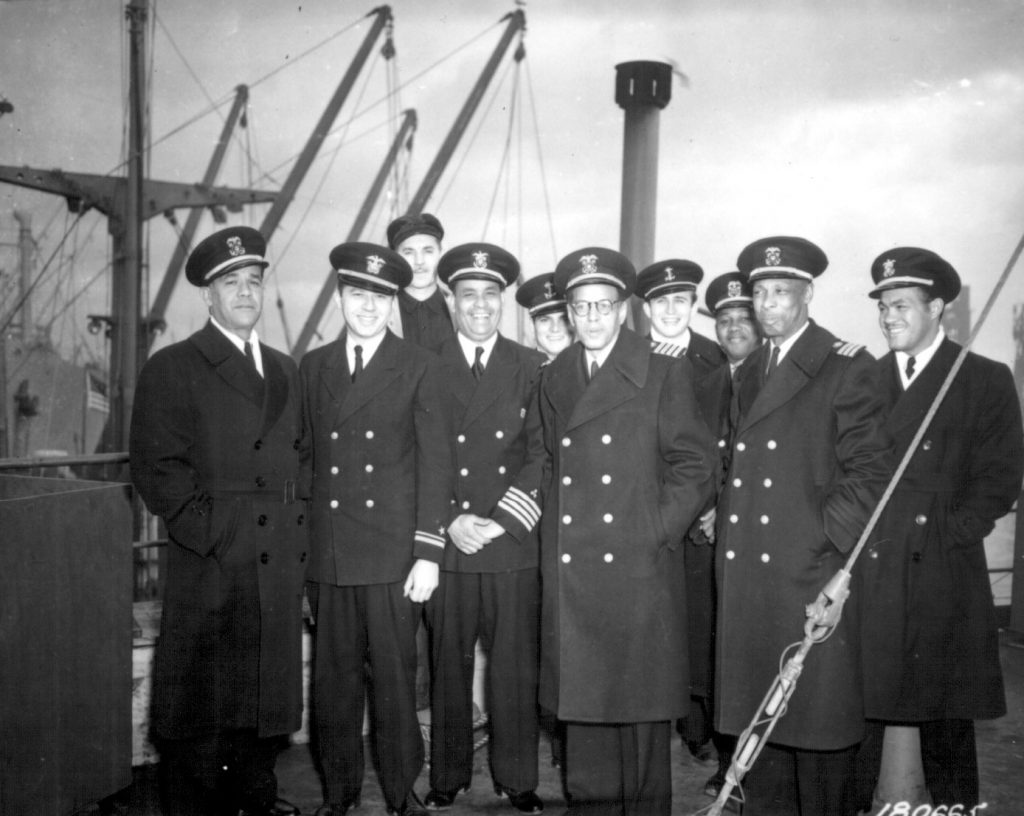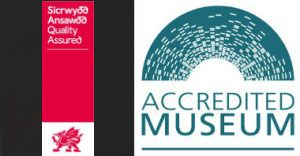For Black History Month, Swansea Museum will be looking back to WW2. A number of Americans were stationed in Swansea and the surrounding area. We will be considering three Black Americans who were in Swansea for just a short period but who would become historically significant.
Ralph Waldo Ellison (1913 – 1994)
In 1953, Ralph Ellison won the US National Book Award for fiction for his novel Invisible Man, one of the key texts in African American culture. The book is about the alienation of being a Black man in post war America.
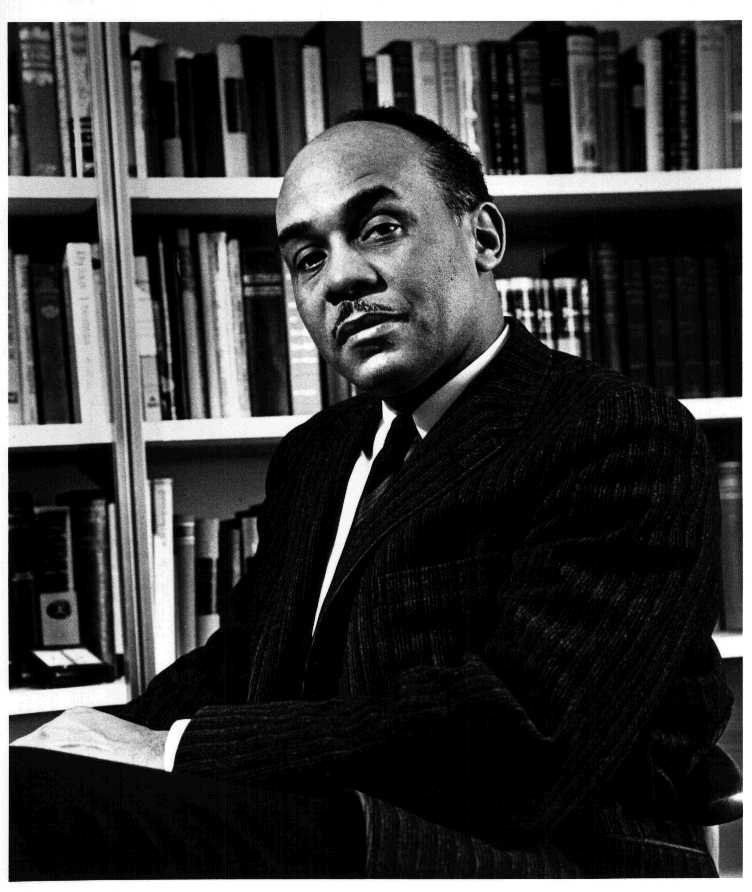
He was born in 1913 in Oklahoma. In 1933 he was accepted into the prestigious Tuskegee Institute, the all Black university set up by Booker T. Washington, the name given to the Liberty Ship captained by Hugh Mulzac.
In 1936 he moved to New York and lived at Harlem YMCA on 135th Street, the centre of African American Culture during this period.
Ralph Ellison was stationed in Swansea during WW2. A cook with the merchant marine, he served on a few Liberty Ships supplying the Normandy beach head and the subsequent battle for Europe.
Ellison wrote three short stories based in Swansea during 1944, in a Strange Country, The Red Cross at Morriston Hospital and A Storm of Blizzard Proportions. The latter two were never published but In a Strange Country appears in a book, Flying Home and Other Stories published in 1998.
Some academics believe that Invisible Man may be influenced and the idea originated from In a Strange Country. In the short story (possibly based on an actual incident in Swansea), the character named Parker, who is Black comes ashore at Swansea and soon after is mugged and assaulted by three white US soldiers. Parker is rescued by some locals, who take him to a club where a choir is practising. The choir sing the Welsh National Anthem, The British National Anthem, the Internationale and as they have an American guest, The Star Spangled Banner.
Parker finds himself in a swirl of emotional contradictions, particularly when they sing The Star Spangled Banner, as a Black man fighting for his country but treated as a second class citizen and who most likely would not be able to visit a similar members club back in the US.
The short story explores some of the themes that later won him the US National Book Award with Invisible Man.
Ralph Ellison was eventually admitted to the American Academy of Arts and letters and received two Presidential Awards, one from Lyndon Johnson and one from Ronald Reagan.
Ralph Ellison died in 1994 aged 81
For further information on Ralph Ellison, there is an excellent chapter in Black Skin, Blue Books – African Americans in Wales 1845 – 1945. By Daniel G Williams, Swansea University. Published by University of Wales Press. 2012
Postscript
Searching for images to post with these blogs, I was aware that the museum had photographs taken by Great Western of ships and supplies arriving from the United States at Swansea Docks.
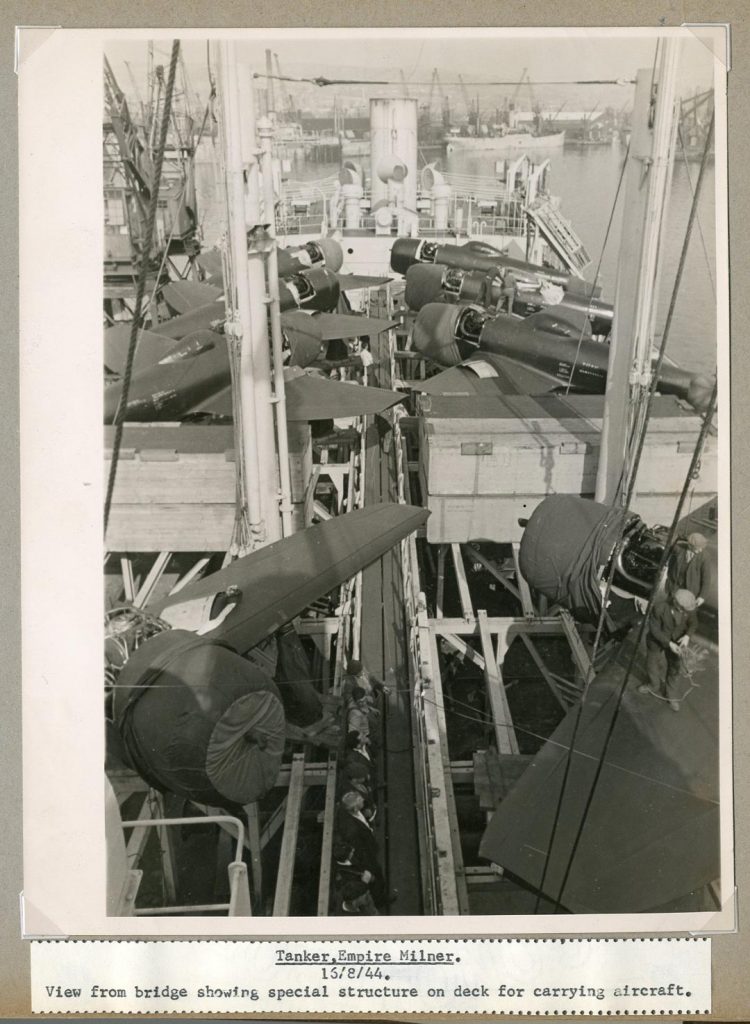
On looking through the two albums I found pictures of the cargo hold of the Sun Yat Set. The text with the photographs explain that the ship was actually on route to Liverpool but was diverted to Swansea. The cargo included 1,520 tons of steel, 278 vehicles, 100 landing craft and 4,927 tons of aviation spirit in drums. It would appear the drums of aviation fuel had been damaged during the crossing. Hence the diversion for special arrangements for handling the aviation spirit at Swansea.
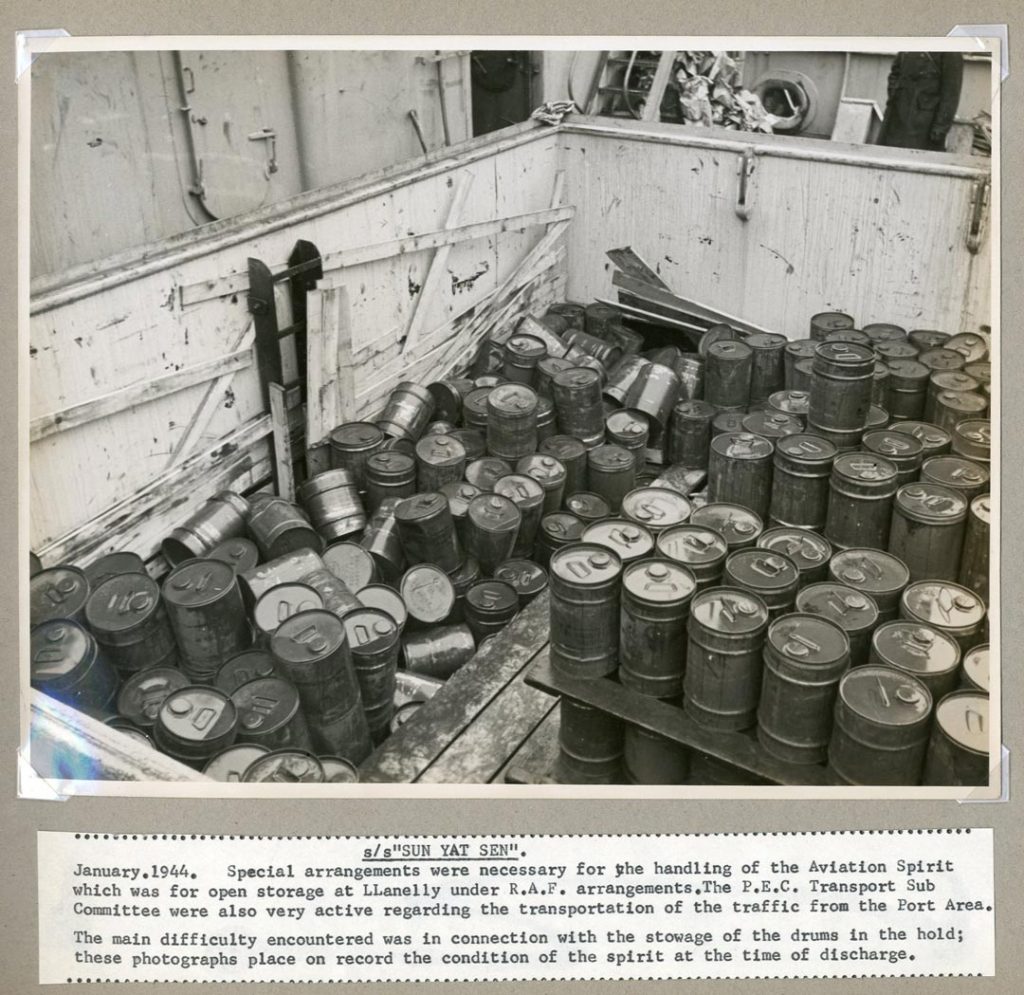
Whilst searching for Great Western I also realised that the museum holds a ledger of all arrivals and departures from 1940 to 1945. The Sun Yat Set was part of convoy HX 273 and arrived in Swansea on the 16th January 1944. It departed on the 5th February heading towards Belfast to join convoy ON 203 sailing back to New York.
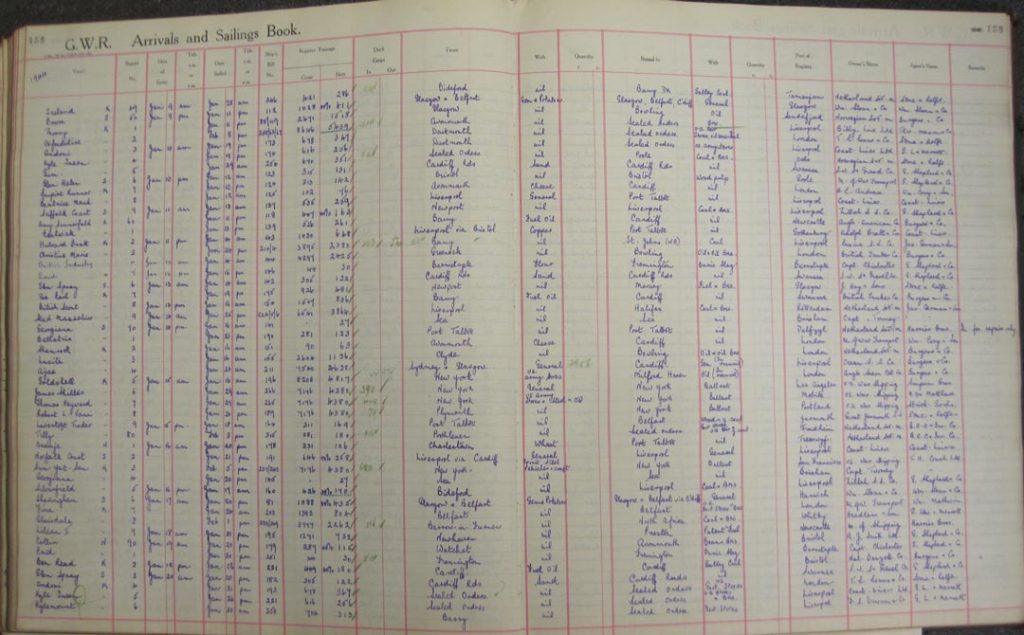
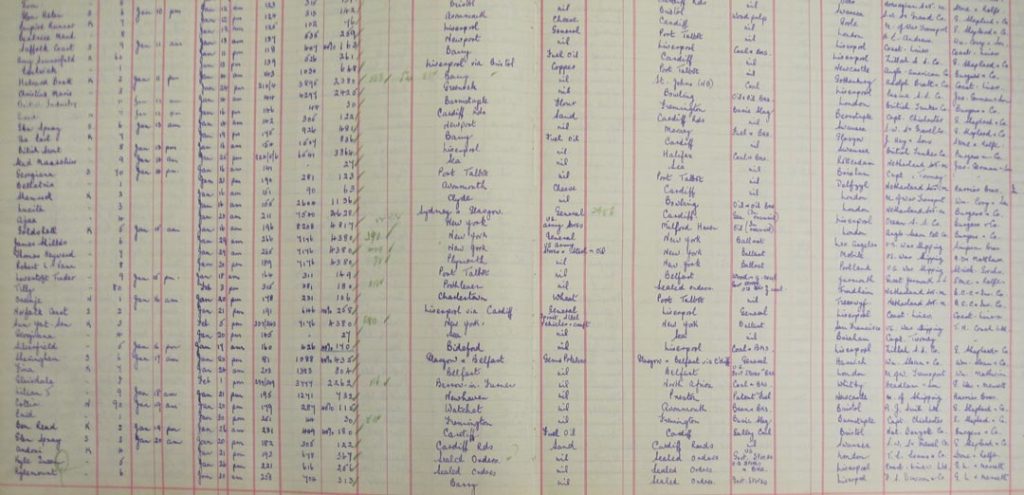
Previous sources indicate that Ralph Ellison was sailing back and fore between Swansea and the United States regularly. Sources state he served on more than one Liberty Ship, but only his first ship the Sun Yat Sen is named. This ship only docked in Swansea once. Ralph Ellison would have been here for twenty one days and of course this would have been his first experience of another country. However, if it was not for the damaged aviation fuel Ralph Ellison would have been in Liverpool and for a much shorter period.
Whilst looking through the nearly 10,000 entries for ships arriving and departing Swansea Docks in 1944 and 1945, I also noted a few ships with the name Parker. Ellison names his character Parker in the story. USS Parker a destroyer on escort duty on Atlantic convoy duty in 1943 and early 1944 and a Liberty Ship Theodore Parker, named after a famous abolitionist campaigner, who was quoted by Abraham Lincoln and later Martin Luther King. Neither of these ships were on convoys HX 273 or ON 203. Pure speculation, but I wonder if any of these ships were part of another convoy alongside Sun Yat Sen and hence the name of the character?
Phil Treseder
Learning & Participation Officer
